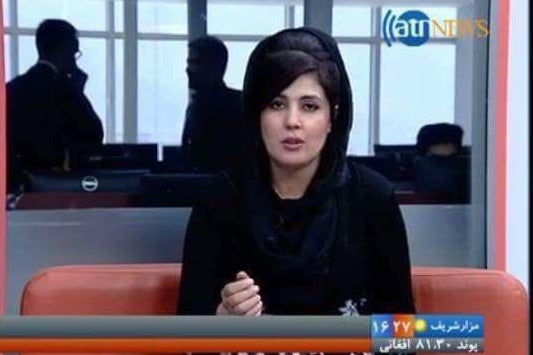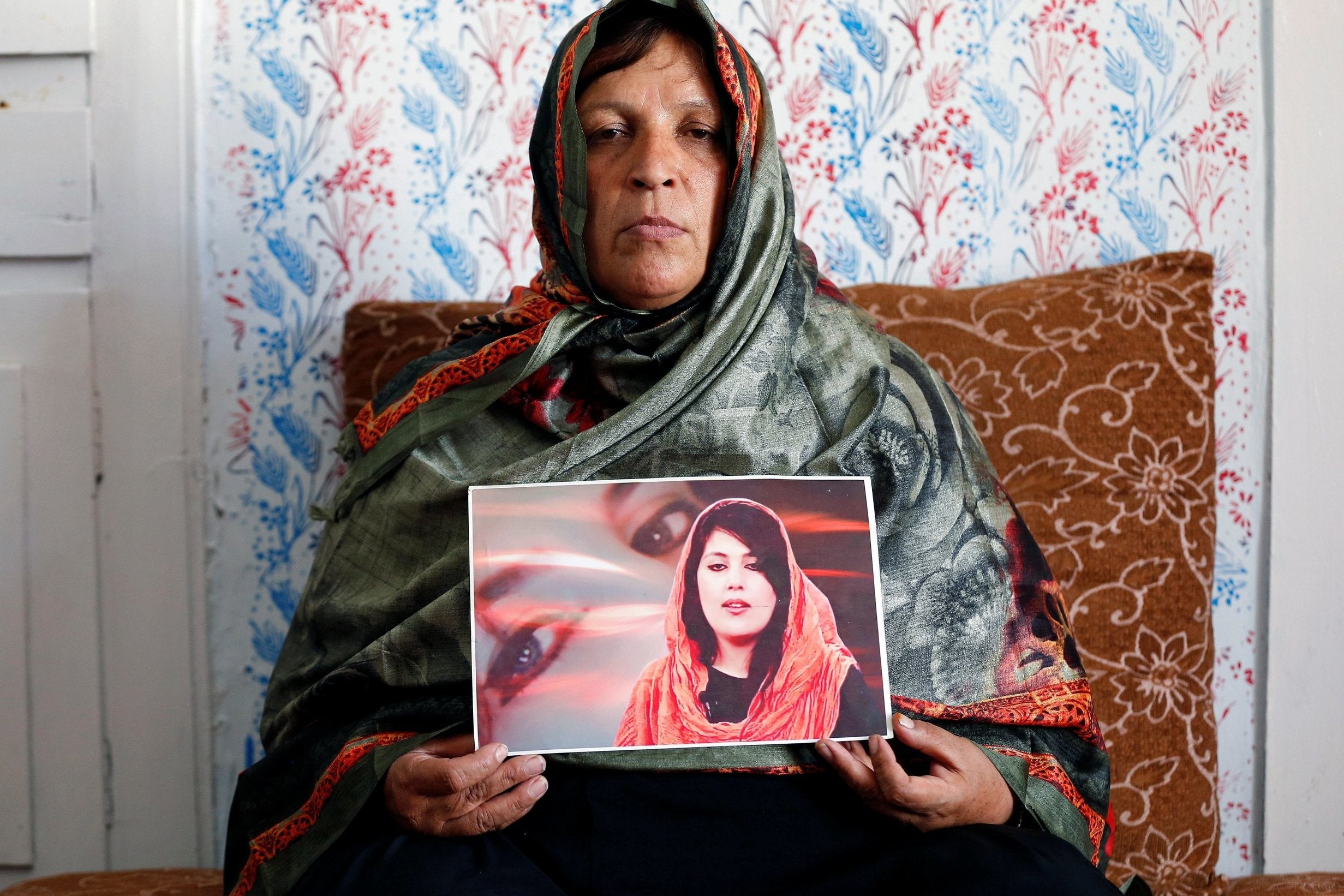
Earlier this month Mena Mangal, the Afghan journalist and television presenter who has died aged 31, took to Facebook to report death threats she had received. In her typically forthright manner, she threatened the bullies back. “These morons know who they are and if they threaten me again I will introduce them to you.”
When news broke out that Mangal had been murdered by two men on motorbikes at around 7.30am on a street in the east of Kabul, it sent shockwaves through the communities she inspired – another Afghan woman murdered on the streets of the capital.
According to the country’s Independent Human Rights Commission around a thousand women were killed last year alone. It is not unusual for men to get away with murder – yet this killing has proved particularly harrowing.
Mangal was a well-known television presenter who in 2017 had been appointed as an adviser in Afghanistan’s lower chamber of parliament and held ambitions for a career in politics.
Her media profile was emblematic of the new Afghanistan emerging from the rule of the Taliban. She fronted shows on TV channels such as Shamshad, Lemar and Ariana, focusing on women’s rights, cultural talk shows and poetry programmes.
Mangal was murdered because of the very forcefulness of her voice and her courage in empowering women and girls. When a beacon of hope is ruthlessly wiped out with nine bullets – hitting her head and her body – we Afghan women are riven by fear.
A phone call confirmed to me that the woman killed was indeed the Mena Mangal I had met in Ariana Television years back when she had invited to me onto her programme. She had a beautiful smile and sparkling, highlighted eyes.
On her Facebook page, she posted her beautiful Pashto poems that talked of progressive patriotism, freedoms, the lush greenery of Paktia province where she was born – along with strident social critiques.
The responses to her posts were not always positive. Lots of men trolled her, cursed her and abused her. Many were angry that she was not what they believed a Pashtun woman should be and that she was “dishonouring” her people.

Unbowed, she continued writing, speaking and keeping up her media profile.
Mangal was the eldest six siblings – five sisters and a brother.
She first trained as a midwife, a critical role in a country with appalling mortality rates for mothers.

Later, while studying law, she found she was a natural as a poet and writer.
She read poems on television and was invited to poetry events and clubs. Journalism, however, beckoned. She had started writing when she was in her early teens.
But her focus was not just her own career – she had five sisters so she felt pressured to work and earn a living so that they could go to school. Mangal worked a number of jobs to facilitate this.
Her ordeal started when she married her fiancé after nine years of engagement, arranged by her father.
Her husband turned out to be a violent man, her family claim, and she had to leave her job in the days after marriage. But she resisted him and stood up against his violent behaviour, they say. Her colleagues remember that she was a cheerful but reserved woman, never burdening them with the challenges she faced at home.
Instead, she focused on her performance at work. After every TV programme recording, she’d ask for feedback on how she could improve.
Her husband and his family saw her work and her outspoken nature as a threat to the family’s honour and they wanted her to give up on all her dreams, according to her parents, Anisa and Talib Jan Mangal.
She complained about him to the Human Rights Commission and the police and, after a long struggle, two years ago a court agreed to their separation on the basis of dangers that were posed to her life.
However, the husband and his family continued to harass her, demanding that she return to him, it is alleged.
Poems Mena posted on her Facebook page were liked by up to 90,000 users, mostly young men. She was a strong supporter of the Afghan security forces and continued to advocate for them against the Taliban.
“I have lost an intelligent and active daughter because of a family dispute issue,” her father told the BBC. “I am asking the government why they could not protect my working daughter and I have lost her. I urge them to protect my other daughters and other women like them who come out of home and serve our society.”
Mena Mangal, Afghan journalist and television presenter, born 29 March 1988, died 11 May 2019







